
7 Best Reasons Dirty Air Filters Reduce Gas Mileage

When your air filter gets dirty, it restricts airflow, forcing your engine to work harder and burn fuel less efficiently.
This imbalance reduces engine power and acceleration while increasing fuel consumption. The strain can cause overheating and damage essential components over time.
Additionally, incomplete combustion raises harmful emissions, negatively impacting both your vehicle’s performance and the environment.
Understanding these factors helps you protect your engine and maintain ideal gas mileage.
Table
- Main Points
- Reduced Airflow Limits Engine Efficiency
- Increased Fuel Consumption Due to Poor Combustion
- Decreased Engine Power and Acceleration
- Higher Engine Strain and Overheating Risk
- Disrupted Air-to-Fuel Ratio Balance
- Elevated Exhaust Emissions and Environmental Impact
- Negative Effects on Long-Term Engine Health
- Frequently Asked Questions
- Final Thoughts
Main Points
- Dirty air filters limit airflow, causing inefficient combustion and forcing the engine to consume more fuel.
- Reduced oxygen supply from clogged filters disrupts the air-fuel ratio, leading to incomplete fuel burning.
- Increased fuel injection compensates for poor combustion, directly lowering gas mileage by up to 10%.
- Engine strain from restricted airflow increases fuel demand and accelerates wear, reducing overall efficiency.
- Incomplete combustion from dirty filters raises emissions and wastes fuel, negatively impacting both economy and environment.
Reduced Airflow Limits Engine Efficiency
When your air filter gets dirty, it restricts airflow to the engine, cutting down the oxygen available for combustion. This reduction in oxygen disrupts the perfect air-to-fuel ratio, forcing your engine to work harder to maintain performance. A dirty air filter decreases airflow, limiting engine efficiency and causing a noticeable drop in acceleration and responsiveness. As the engine struggles, it strains essential components, potentially leading to choking and further performance decline. By limiting airflow, the dirty air filter directly reduces your vehicle’s ability to operate effectively, compromising both power and fuel economy. Recognizing this impact empowers you to maintain your air filter regularly, freeing your engine to breathe fully and perform at its peak, ensuring efficient, liberated driving.
Increased Fuel Consumption Due to Poor Combustion

When your air filter is dirty, it restricts oxygen supply, causing fuel to burn inefficiently in the engine. This poor combustion forces your engine to consume more fuel to maintain performance. As a result, you’ll notice increased fuel consumption and reduced gas mileage.
Reduced Oxygen Supply
Because a dirty air filter restricts airflow into your engine, it limits the oxygen needed for efficient fuel combustion. When oxygen supply drops, your engine compensates by injecting additional fuel, increasing consumption unnecessarily. This imbalance reduces combustion efficiency, causing your vehicle’s gas mileage to drop by up to 10%. The restricted air supply forces the engine to work harder, undermining performance and raising emissions. By neglecting to replace or clean a dirty air filter, you allow this inefficiency to persist, wasting fuel and money. Maintaining a clean air filter guarantees prime oxygen availability, enhancing combustion efficiency and fuel economy. This simple step can save you about 39 cents per gallon, liberating you from excessive fuel costs while supporting your engine’s health and overall vehicle performance.
Inefficient Fuel Burning
If your engine doesn’t get enough clean air due to a dirty filter, it can't burn fuel efficiently. This leads to inefficient fuel burning, forcing your engine to consume more fuel to maintain performance. Reduced oxygen causes incomplete combustion, wasting fuel and increasing emissions. You can liberate your vehicle’s efficiency by replacing the air filter regularly, restoring proper airflow and optimizing fuel usage.
 Top 3 Air Filters for Your Vehicle
Top 3 Air Filters for Your Vehicle| Issue | Cause | Effect |
|---|---|---|
| Inefficient fuel burning | Dirty air filter | Increased fuel consumption |
| Reduced oxygen availability | Clogged airflow | Poor combustion |
| Engine strain | Inadequate air supply | Decreased gas mileage by up to 10% |
Understanding these impacts empowers you to reduce waste and improve your vehicle’s fuel economy.
Decreased Engine Power and Acceleration

Although it might seem minor, a dirty air filter directly restricts engine airflow by limiting oxygen intake, which reduces combustion efficiency and causes a noticeable drop in power and acceleration. When oxygen supply diminishes, your engine’s air-fuel mixture becomes imbalanced, leading to inefficient combustion and a decrease in torque and horsepower—sometimes by as much as 10%. This means you’ll experience sluggish acceleration and slower response times, making it harder to reach desired speeds promptly. Ignoring a dirty air filter intensifies this issue, causing a lag in engine responsiveness that hampers driving freedom and control. By replacing a clogged air filter regularly, you restore peak airflow, maintain combustion efficiency, and reclaim the engine power and acceleration you deserve.
Higher Engine Strain and Overheating Risk

When your air filter clogs, it restricts airflow and forces your engine to work harder to pull in enough oxygen for combustion, increasing overall engine strain. This dirty air filter affect compromises your engine’s efficiency and accelerates wear.
Key consequences include:
- Elevated engine workload leading to faster component fatigue
- Increased heat buildup risking engine overheating
- Up to 10% horsepower loss, reducing vehicle responsiveness
- Greater mechanical stress shortening engine lifespan
- Potential for costly repairs due to prolonged overheating
Disrupted Air-to-Fuel Ratio Balance

When your air filter gets clogged, it restricts airflow and disrupts the precise air-to-fuel ratio needed for efficient combustion. This imbalance causes oxygen deficiency, leading to incomplete fuel burning and reduced engine performance. As a result, your engine compensates by consuming more fuel, which lowers your gas mileage.
Imbalanced Combustion Process
Since a dirty air filter restricts airflow to the engine, it disrupts the critical balance of the air-to-fuel ratio, leading to inefficient combustion. When this ratio is imbalanced, your engine doesn’t get enough oxygen, causing incomplete fuel burning and reduced power output. This inefficiency forces your engine to consume more fuel, cutting your gas mileage by up to 10%. Additionally, the imbalanced combustion process increases harmful exhaust emissions, contributing to pollution. To keep your engine running effectively and improve fuel economy, maintain a clean air filter. Key impacts of an imbalanced combustion process include:
- Reduced oxygen for combustion
- Incomplete fuel burning
- Decreased engine power
- Increased fuel consumption
- Higher pollutant emissions
Don’t let a dirty air filter hold you back from efficient, liberated driving.
Oxygen Deficiency Effects
Although your engine relies on a precise air-to-fuel ratio for peak performance, a dirty air filter restricts airflow and lowers the oxygen supply needed for efficient combustion. This oxygen deficiency effects disrupt the balance, causing incomplete combustion and increased fuel consumption. As oxygen decreases, your engine compensates by burning more fuel, cutting gas mileage by up to 10%. Maintaining a clean air filter liberates your engine to perform at its best by ensuring adequate oxygen levels. The table below highlights key impacts of oxygen deficiency effects:
| Effect | Cause | Result |
|---|---|---|
| Restricted airflow | Dirty air filter | Reduced oxygen supply |
| Disrupted air-to-fuel | Oxygen deficiency effects | Incomplete combustion |
| Increased fuel burn | Compensation for low oxygen | Lower gas mileage (up to 10%) |
| Carbon deposits buildup | Incomplete combustion | Engine inefficiency |
Elevated Exhaust Emissions and Environmental Impact
Because a dirty air filter restricts airflow to your engine, it causes incomplete fuel combustion that increases exhaust emissions and degrades air quality. When your engine doesn’t get enough air, more fuel burns inefficiently, releasing higher levels of harmful pollutants. This not only lowers your gas mileage but also worsens environmental damage.
 How Frequently Should You Replace Car Air Filters?
How Frequently Should You Replace Car Air Filters?Consider these impacts of a dirty air filter:
- Up to 10% reduction in fuel economy, increasing fuel consumption
- Elevated emissions of carbon monoxide, hydrocarbons, and nitrogen oxides
- Greater contribution to air pollution and health risks
- Increased greenhouse gas output accelerating climate change
- Clean air filters promote efficient combustion, reducing emissions
Replacing your dirty air filter regularly is a simple but powerful step toward cleaner air and better fuel efficiency.
Negative Effects on Long-Term Engine Health
When you let your air filter get clogged, it restricts airflow and disrupts the perfect air-fuel mixture, which can cause incomplete combustion and put undue stress on your engine components over time. A dirty air filter forces your engine to work harder, increasing internal strain that may lead to overheating and accelerated wear. This imbalance in the air-to-fuel ratio generates carbon buildup, reducing engine efficiency and shortening its lifespan. Neglecting air filter maintenance compromises combustion quality, resulting in inefficient fuel use and potential damage to valves, pistons, and cylinders. By routinely replacing a dirty air filter, you maintain ideal airflow, preserve engine integrity, and avoid costly repairs. Taking control of your engine’s health liberates you from premature failures and sustains peak performance for the long haul.
Frequently Asked Questions
Can a Dirty Air Filter Lower MPG?
Yes, a dirty air filter lowers your MPG by reducing airflow efficiency, forcing your engine to work harder and consume more fuel. Keeping your filter clean optimizes combustion and liberates your vehicle’s true fuel economy potential.
What Happens When an Air Filter Is Too Dirty?
When your air filter clogs, it’s like breathing through a straw—airflow restrictions choke your engine’s efficiency, forcing it to work harder, burn more fuel, and risk damage. Clean it to free your ride’s true power.
What Are 3 Problems That May Happen if You Drive With a Dirty Air Filter?
If you drive with a dirty air filter, your engine performance will suffer, causing reduced power and acceleration. You risk overheating due to restricted airflow and increased emissions, which harms the environment and may lead to costly repairs.
Does a Car Run Better With a Clean Air Filter?
Yes, you’ll notice improved engine performance with a clean air filter because it optimizes airflow, ensuring efficient combustion. This means your car runs smoother, accelerates better, and maintains fuel efficiency, freeing you from unnecessary engine strain.
Final Thoughts
If you let dirty air filters pile up, you’re fundamentally asking your engine to run through a thick fog—struggling with reduced airflow, poor combustion, and imbalanced air-to-fuel ratios. This not only slashes your gas mileage but also puts unnecessary strain on your engine, risking overheating and long-term damage. Keeping your air filters clean guarantees peak performance, fuel efficiency, and lower emissions, helping you avoid costly repairs down the road. Don’t let neglect cost you at the pump.
 10 Best Local Stores for Car Air Filters
10 Best Local Stores for Car Air FiltersReliable Floor Jacks on a Budget: Best Picks for Under $150
Top-Rated Floor Jacks Over $100: Built for Professionals, Priced for Smart Buyers
If you want to know other articles similar to 7 Best Reasons Dirty Air Filters Reduce Gas Mileage you can visit the Air Filter Care Replacement category.
Leave a Reply







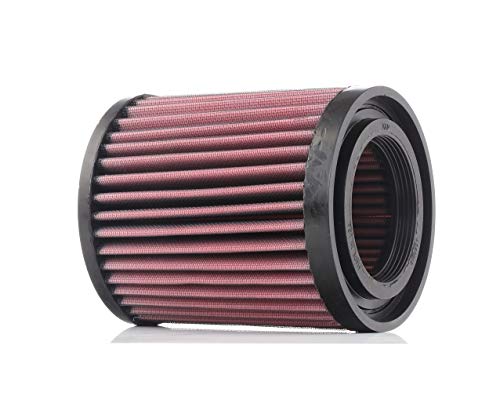














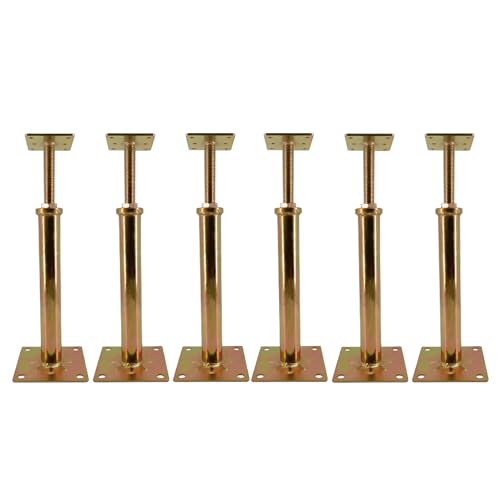
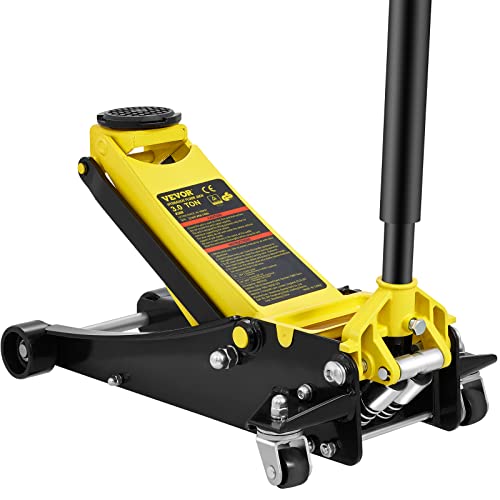
















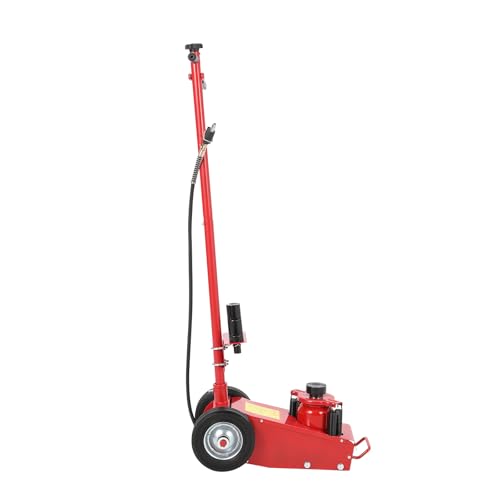
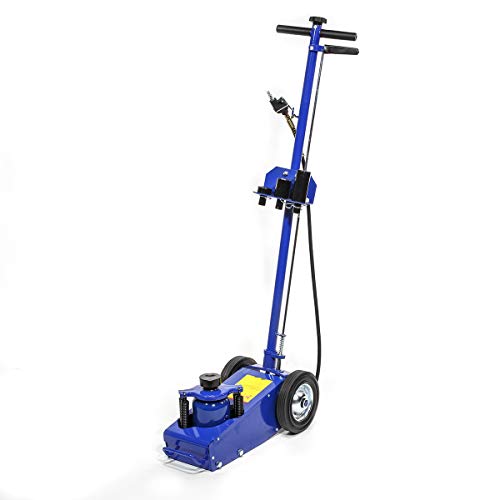




This is also interesting